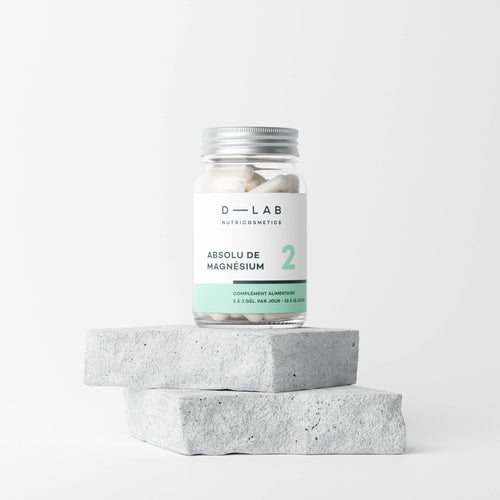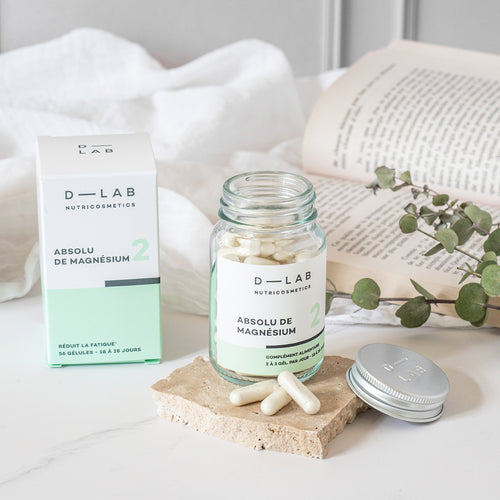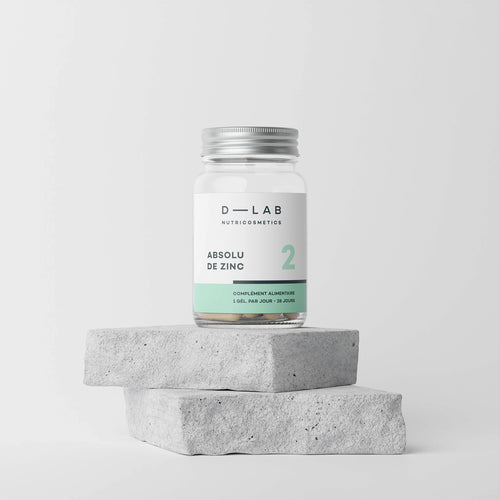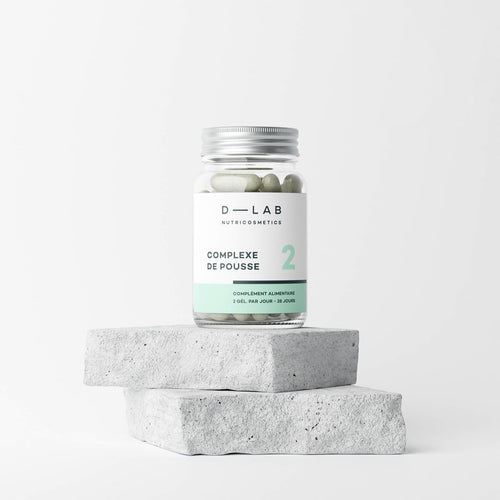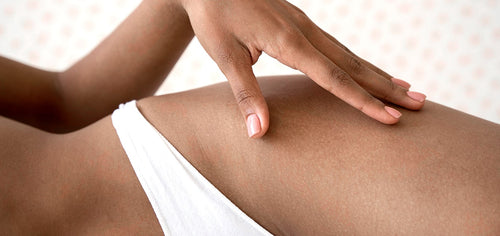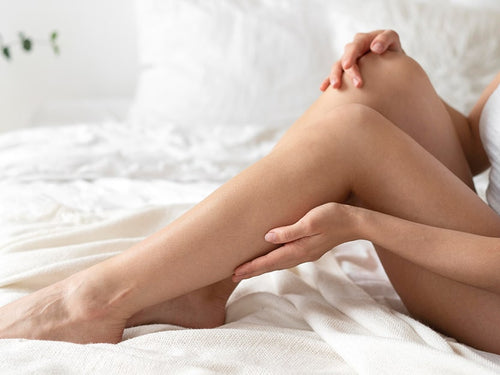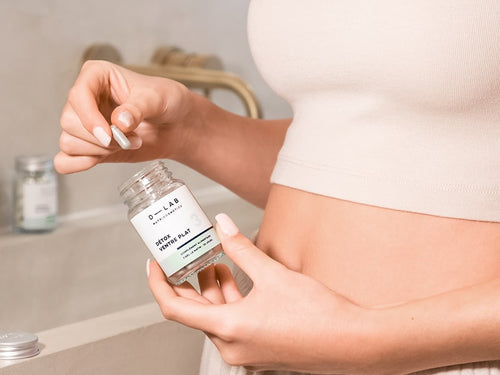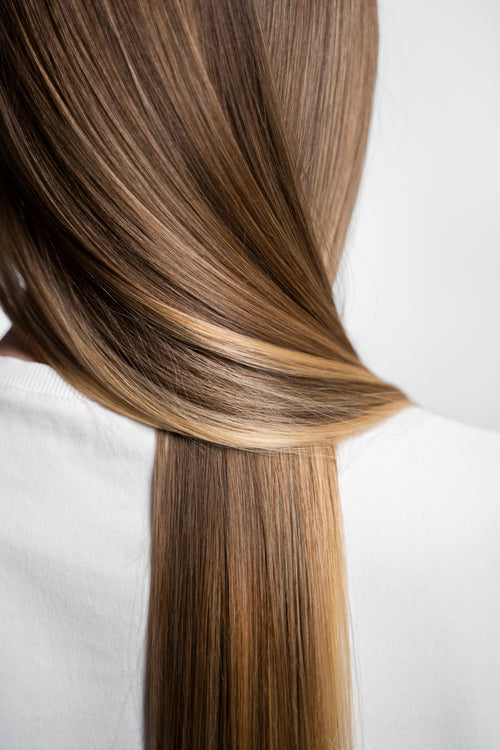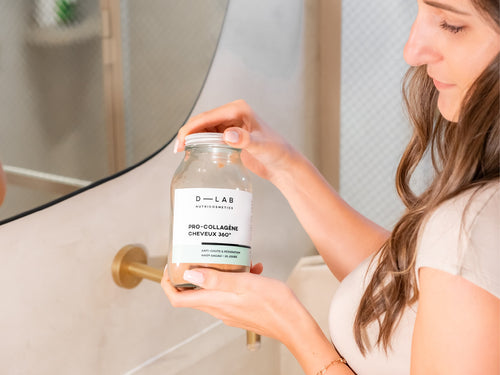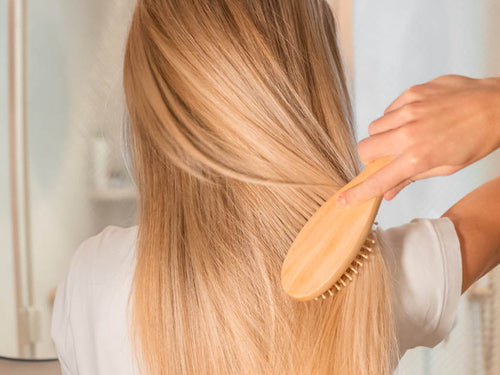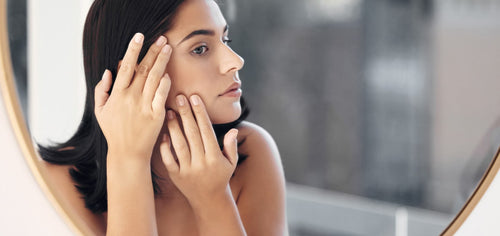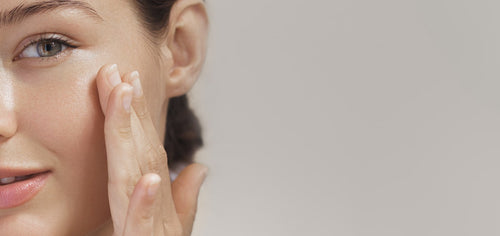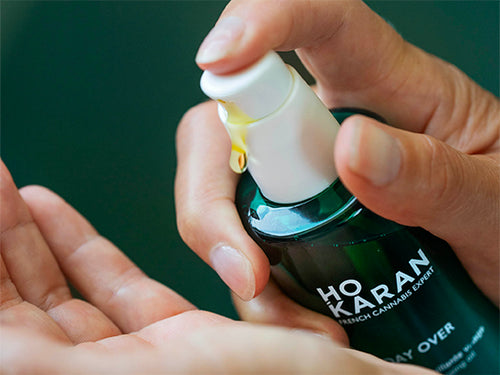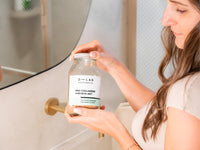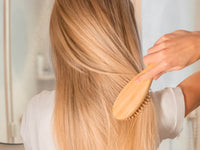The first white hairs have appeared and you didn't expect them so soon?
Have you asked yourself the right questions? Maybe it's genetic? Maybe it's due to a deficiency?
Our hair is made of keratin, a protein rich in B vitamins (B5, B8, and B9), amino acids (lysine, methionine, cystine), zinc, iron, and copper.
In order for our hair to be healthy, it is important to provide all these nutrients to our hair fiber in order to fight against external aggressions that can cause deficiencies and the early appearance of white hair. Discover the D-LAB range of hair treatments.
But then, where does the color of our hair come from?
Melanin is responsible for the coloration of hair, skin color, and eyes.
It is a natural pigment whose synthesis is controlled by tyrosine, an amino acid. When there is a melanin deficiency, the first white hairs appear. The decrease in melanin levels can be due to vitamin deficiencies but also to a pathological disorder such as vitiligo.
Discover through this article the deficiencies that may be responsible for white hair.
Read also: white hair in young people

Why do we have white hair?
Melanocytes produce, under the control of tyrosine, melanin responsible for the coloring of our hair. We all have different pigments which makes our diversity.
With age, the melanin level depletes and eventually stops coloring the hair, which continues to grow.
When the deficiency is not genetic or related to the natural aging of cells, it is probably due to deficiencies in nutrients and micronutrients.
Questions to ask yourself: What are your eating habits? What is your lifestyle? White hair, could it be stress?
Before 30 years old, the appearance of white hair is considered early and has become a real concern.
Research has identified certain factors that may be responsible for melanin deficiency.
Indeed, when you have an unbalanced diet, the necessary nutrients are therefore not provided in sufficient quantity and leave the opportunity for various external aggressions to weaken the hair.
The nutrients that make up keratin do not reach the hair bulb, and it is no longer properly supplied, which leads to deficiencies.
The different vitamin deficiencies
A deficiency in vitamin B9:
Vitamin B9, also called folic acid, participates in many actions in the body such as helping hair and nail growth, stimulating the nervous and immune systems, and producing red blood cells that carry oxygen in the blood to where the hair bulb draws its nutrients.
A vitamin B9 deficiency can then cause anemia, that is a lack of iron in the blood necessary for the good health of our hair and for the oxygenation of cells by the blood vessels, but also an increase in white hair and hair loss.
A vitamin B5 deficiency:
Vitamin B5, also called pantothenic acid or bepanthene, is one of the main components of keratin, so it is necessary to provide it in sufficient quantity for healthy and strong hair.
It is essential in preventing the early onset of white hair, in maintaining hair and mucous membranes, and also in the formation of antibodies to improve the immune system. In the case of a deficiency, it can cause the early onset of white hair as well as weakened hair.

A vitamin B1 deficiency:
Vitamin B1, also called thiamine, is essential for preventing complications related to conditions such as diabetes; it also contributes to the proper functioning of the nervous system.
A thiamine deficiency can cause premature graying of hair.
A vitamin B12 deficiency:
Vitamin B12 has an important role in the body, it is involved in the conversion of food into energy, and it also contributes to hair pigmentation and the maintenance of its color.
In the case of a vitamin B12 deficiency, the appearance of white hair is one of the main consequences.
A deficiency in vitamin B3:
Vitamin B3 contributes to cell renewal and fights oxidative stress causing degeneration of scalp cells.
A deficiency in vitamin B3 can result in oxidation of cells and cause the appearance of white hair.
Natural solutions for white hair
To address deficiencies, it is possible to provide all these vitamins through diet. If this is not the case, you can opt for a supplement to nourish the hair suitable like a supplement rich in melanin. It will provide real support to your melanocytes and activate the pigmentation of cells lacking melanin.
You can therefore opt for a healthy and varied diet by including fruits and vegetables rich in B vitamins such as avocado, broccoli, asparagus, corn, as well as carrots and cauliflower. You can consume fatty fish rich in omega 3 and 6, vegetable oils, eggs, and seafood, as well as oilseeds like walnuts, hazelnuts, and almonds.
Do not hesitate to choose whole grains rather than refined ones and to limit sugar consumption.
All these foods are rich in nutrients and micronutrients, thus providing the necessary amount to our hair bulb, which will draw what it needs from the properly oxygenated bloodstream.
However, nowadays, it has been observed that all these foods are no longer of such good quality, so you do not provide in sufficient quantity everything your hair needs.
There are natural solutions against white hair. By choosing natural dietary supplements, you will provide all the elements that you can find on your plate in an isolated and highly concentrated form. A real support!
Dietary supplements suitable for white hair
D-LAB is a French dietary supplement brand, made in France. We are committed to the well-being of everyone and we aim to provide natural solutions, 100% clean, without nanoparticles, without controversial substances, and not tested on animals.
We offer dietary supplements for various issues, including for white hair: L’Absolu de mélanine to rescue your white hair.
Our formula is rich in vitamin B8, also called biotin, to strengthen the hair fiber, reduce hair loss, and protect against free radicals and stress-related oxidation.
Our laboratory has developed an innovative complex, enriched with keratin hydrolysate (a constituent molecule of the hair fiber) naturally pigmented by melanin.
A formula that significantly darkens hair color and has been the subject of a clinical study on its effectiveness. You can therefore choose this formula with confidence and follow a treatment for 4 to 6 months to activate the cellular memory of your cells and provide the hair follicle with all the quality nutrients it needs in sufficient quantity.

In summary, to minimize the appearance of white hair, change your hair care routine and your lifestyle.
Choose a natural routine with cosmetics suited to your hair and your white hair, a natural routine, paraben-free.
Limit sugar consumption, and limit cigarettes that have a harmful effect on your hair. Indeed, nicotine affects hair follicles.
Finally, limit alcohol consumption and engage in regular physical activity.

